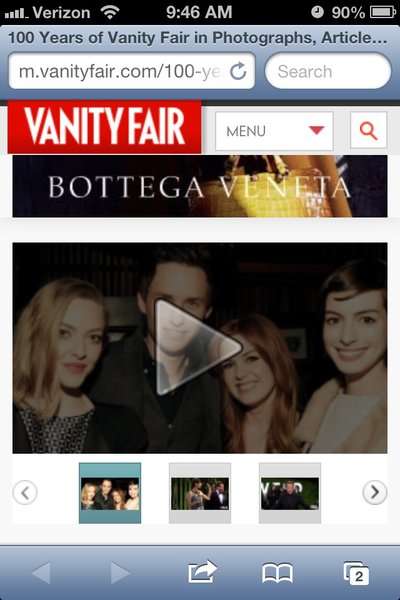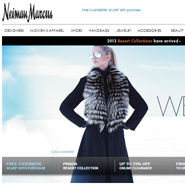Affluent millennials who refer to themselves as influencers purchase products and services online on a daily basis, while Generation Xers purchase weekly and Baby Boomers purchase monthly, according to a new report from iProspect.
The “Affluent Influences” report found that affluent millennial influencers are receptive to mobile advertisements and purchasing online more so than older generations. Luxury marketers should keep in mind their target audience’s media and buying habits when creating campaigns.
"As marketers, it’s no secret that digital is an important tool in our consumers' lifestyles, but this research shows how much more intense the digital footprint is to this group, and while millennial and Gen X affluent influencers are deep into digital content in nearly everything they do, affluent Baby Boomer influencers also use and enjoy digital media in their daily lives," said Andrea Wilson, TX-based director of digital strategy and luxury practice lead at iProspect.
"With digital consistently playing an important part of an Affluent influencer's lifestyle, this should be a call to action to luxury brands to ensure they think about how to engrain their brand into their target consumers' daily lives," she said.
The Affluent Influencers report measured the data associated with 4,855 affluent adults with a household income of at least $100,000 and then looked specifically at the group who designated themselves as “influencers.”
Young and old
Affluent consumers vary in media consumption and online purchasing habits based on age group.
Overall affluent millennials are receptive to mobile advertising, while Gen Xers are receptive to leisure activity ads and Baby Boomers are not likely to engage with ads.

Bottega Veneta mobile ad
Also, most affluent millennial consumers will pay for access to news online, while Generation X and Baby Boomers will not.
However, the generations are also similar in some media habits.
For instance, approximately a third of each generational group reads print media products.
Sixty-five percent of affluent millennials learn about and book travel online compared to 68 percent of Gen Xers and 69 percent of Baby Boomers.

Four Seasons Web site
Also, fourty-four percent of affluent millennials and 46 percent of Gen Xers watch broadcast TV, compared to 62 percent of Baby Boomers.
Furthermore, millennials and Gen Xers also use mobile devices, game consoles and DVR to watch TV. Baby Boomers just use their DVR as another source of TV.
In addition, the device most often used by affluent millennials and Gen Xers is mobile or the tablet. Baby Boomers most often use their laptop or desktop computers.
Sharing advice
The report also found that different age groups of consumers have different needs for seeking and giving advice.
Affluent millennials are giving advice to fellow consumers on luxury goods, fashion and apparel. They are seeking advice in beauty, books and childcare.
Moreover, affluent Gen Xers also give advice on luxury goods in addition to home décor. They seek advice on books, apparel and food and beverages.
Affluent Baby Boomers differ since these consumers are giving advice on cars, financial matters and home décor. This group seeks advice on fashion, apparel and cars.
Overall, as many luxury brands either look to target the Baby Boomers or the millennials, these two generations are not so different.
"The most interesting and surprising finding is the connection and similarity between the millennials and Baby Boomer affluent influencers," Ms. Wilson said.
"Other than the difference in intensity of mobile internet usage, their attitudes and lifestyles are extremely similar," she said. "These groups are both passionate about cultural events and travel.
"For example, they are both very passionate in their lifestyle choices and attitudes, while Gen X affluent influencers are generally more middle of the road in their responses."
Final take
Erin Shea, editorial assistant on Luxury Daily, New York
{"ct":"dSQ5ZvykEjn2qpTgs8aHCAQPgIl0gQDTB6KV2Cahoa2Omi86ndfDof3rAv2kNmqIfRawGYb4JT0t3GKRD+ywDv44UuXtQmBSHuKo9pIeXo\/Yk2cUXc\/O2Cw0EO7r27uyNJLBDxRnjQe49XEuCduYzpCn5v2FNzh48AWWUNEXjV2+whd\/K7xL0Iw+ShaJqec0lXCPvcwBqusiY3YxP2mmuv9LXUBNBjJoYreyZgS+IGdRN6k9aobLaE\/r0DwQxuE\/j+0BBBkPWgLOYsRYSPViuyXMPpgd7tnkoXbt8lrfHsIXdytb1\/KbMW9hPrulfQz2TSrN4LzKNbKuTiaJgNSvHP5ZihOUhttFUX+33XfgmddZym1\/Tjya+E2l4wtK8sLDuYt0Ee5yVo+HJfjqJ1Df9grpMVpcq+wnqqOw7Qm1CcGSRlQsZUU90cysKOedz85TVndjwAZZVyGTQos2HC8Hq0jvfuqKx4iQ4qeBYaY6128Wk2AYXfKn2DC3wOhb\/gBN4I2tEVYUvm+1MDJig0jTEaNvdLP4E5hnmJV3Sqmt4rbGLGkWz34zezdAoh6mzx2lpU0yeNdZQqWdrqz41BeR8H1l5xwUl03myXjg9558l1deatHfcIqhJWIyVhWpVTFmqxrIWfu\/+YaJs+Us2jgqZSTwIUPDZT8OAMa3R5wbFpb+QPXhwZMVONUob4CMKX13nqMeGE+wNf6RoI50OmV5fD78pS3o70evCiQ\/G34KUKxdgL2CGp5z7svPQ6pqLgPvwi\/Fv8fBBLhG5zaKEQbyVfuXVr5uJxHKbPzalgvEyaVq6pFl6YORbIQ6nuLaCnRC0YvbrNGjKcqJXQcO8qK1dBG4iBC4iLjLqpl9uSKVzW8H2v8UJ0fzKLoHGihBJjcSZcUMlWK+axU+snPKsM13FetDlF0Cr3car7bpHCG0HjWHCMUmLn+zUU3Yz\/\/kMknJE2BjMVOGqKJLVlrcid7EvmY5eEaKb6WQgI\/ncgQQeTjJ4O2u+bJt3tI8v1k6j12+vBOHmV38pr++8RvsV8fIfM9zVbpWN2MVepmj\/8OhQ6GgxUnjFUAjerdNjm6ubB8uD8FWVh4\/NsCFpARbMFY47p+AOkHlQGmc5YlgZbKdDsa5q++8ND3I8bh5v4p4PHfG19ROirKgflnJfg871PuLDnGV7Lt1UVLMaBv7awF1umVrc57oeL+obKHhG13Yc+MVaoBEgHdZsUIdYIKMniKnXiUUcTtHDO1Jc\/GDx1ehzsfoeD8zR62CuU1BbaiXoDi36A5DuXtgzH\/4XxFUaQ2jW9iTgL\/qSKGSgtgwkW5TMFhgCYd+NVl8Bn2uxK\/yaqXHaPwKGhnHBYlT5lN3DleUnbP0da\/jXNnI9ITH7IfhBBd7jWzTuv+a1rZvpQWDPks4dAUHafjsFpr\/dzNaBnXImo5w3J53jCySOy\/9y0UYmrFETZy0WkK8aWL8xlLpaWQcwpB\/DDB7q6bSkAvlb2Vzy8eMoFflINzs21JhG3C1YYXnII5CHmX1h+iH+g2VITadAcHuuxQ07lmDNwghtApG6im31nZJ3wsD7qtGLWGJ5UzuI0uMk8m9cfr7cxl72Is0+DwMSAqUraCzC1Is50\/Ha\/JrC1sc8N51O1BO8j4x5kqT+ToXS\/Fp5aPSAF8Tuf712H59+LmLs1apAEgvtg1khIxJdnNbZDjqgOYkFvJfMg\/AROf+n+gvfx3TN6mh3Pm+klj4fIRrDQV+7g6RIHFUD9JFdMl55Q3ZBjLtQYthFk3d5OdmENdV3gVwX1YyQOTTLBZJdHXS3NaDDK7HT+pJKZE97IbEzbunkWEqvIP5r6qC9ocCF+LDaq\/HnObkqErzp1mVxvzWdbDQB1oS4XYcxhsjdzSaZ1IFztiueL+RwO26hHndAatAKWXMhyqgQ03bGGBXelRQk\/bbqpc9Y3NRj4egCblgozg\/F3WvcbS9XNQ5OjM7w0ELm2b2t3YMp5qPqkl50FNUpoTNCvY+dKCRQSgX0p2KCntL1tD0DMOnTAhBpXLcjZPOVn9PPVAUcZqT5uDH4OGq84g0RyFOdEag5cncGsamRDuDVwkN6tL5iqbzfU\/Q4vYXOCDN67HBHawJ57yMhfJq3QZI4QyYH3AIVoxVRiMm3n+7j3GWKUainD6L5jY87g7g7tN4hnECG0UVD\/vg17z7O8S\/jjiVi3qW\/nGeNYfoDaWFFgYu\/BorNCGhnz\/owbYTdTuYXeSSSI8Dhe4Qjl2I6SlkBjYNesAM0ioaUbOfn+9zXoSLCvRQrMbHMJuDNZBbLqrsXdK3oKyeneW9oJ738q23FeKM4slTklUU6WkAJMgiaX4WrM4+URsRk2TtZt5Xfure2Yc88ACe3w9YQKi595KhamzW\/hnx4i6waYVM9eLgFsKT6sLhukGwpL13X1yrG4j+x7R0SkCq4sDkLNrrY2chlw8w3pv1yC1puZ\/NCwsaEMr2zA0GUZTZ\/ZkfBOMqCbCn6EH\/DCPcQCZeGuqjFosOXZbB38mHzKezhDHaOfcfDle7sN4nPqh\/gweoP5zQkQGYtYirtmY9HvRFHm+fUfISwnuaFluNBHgMq9arV7Q3qpauAebj98vkZWA\/Jc04VBQbs2oFcFkqsU6xb8OC3TicF38SQp1fqjknLnLF+G+vLNFUnxRuJ0s1SDtCFc+daZqp3HaEyNLJrpdWednUJy+RB6X6pBqHM9T9GMG+JTSdcD0XFAx5kfCGSm+hcUZI541M29pSVY4QF+4uZsci9ETKl20+ptcUMpNssmdPLCYrxYUfdtoxzfe730CSeM6ZnhaErB+\/YQJRnTFkB7u8Pf5FHMUAe3+p0\/bNOW+uh+aU4JPQsg1bJwtQY\/dQvuucZk63BUaoV\/qRJWbBwI\/NaEG\/nM7qy6gJKkXm5MJdgVWO55ntoreE1\/idSknsAUz+l7Z\/X1lAanRcG5KzM1q8h1zlgZyDaOkckUt0UtveEkdod0dzaqu0GHpmCG\/jR1wrmu7TZRujCWbhJ3dp9m2nmjh0lyggKxJ36PKl6bw8QuGCsAsOiDoacl8+B2s85w3cfouaMuuQ695PWUWCtutCqe92j+2h9lf\/cpT2sNryMxW3jhzDX302tPzTFTZV9YPvLm5s\/hKjZqohRSVbnzZEGOhJD6hwYTpduNdYn6wXF\/Tv0o2S2korueNcUo08s0RSgN1dItWOBvX9K7mtZveFhj8aAJuN20H0TPgddIy0jGtryvdu\/2VU7Vv2adOi\/5QtmoSeBInLEhnLrYZdm5YpHg\/WMmOjlMsAQ5ymSATGRSHNWoSSSL6BkwppwuomloFhPw6eji0cTUa11rOD5KbpJVUAmEapqlROjsJpv4vKkBpoYU0AVuVmCi2EryWu4VmdrOpJ34EO5DdaIIn2ZWeo535PybDzIPeHm5N3zm2dV89Arw2JSE87sU7Ui6HTUedvx5EwevODvLuD7CQQ7FvVst+BjrxOUqIPjlcFOAAgdU0+tSHltNiLyKSqYyXjyLhHVjiLVV6SCc+v+HOpl9rGqhj2SrsBELfla0RnYhocZ+W3ro8aL3Rhry8kv5C6nF6Zm6LogvaVcZRwPei+d09a9FkXChd+AbNN4GqGPE0zo9vS+JFk8eOig9Myms8Vs8fWpj+8ojRDmFj\/Z3toZJYwZuIVTAkFA3rSH2tz9025Yc8xIUXFzhKN3zgPZ6o3IzuiL6Lu7b2ip5MRux74lF3MYarPblO6Q1FOsMOX5zs1g\/2FT9XBz4P2K6FK2cu+MQAYf4yx0hjBgmShVwkvfSz+dFTu8hiBmJOKHnxzGy3D5VksZI7yXrznDFT822up6DxDUioIs\/d5S4dyJW8Wx8wO48lOXk9Jafw5yrBxXFiUKbPjWkrlRxlhHmtYE7m4Grjl9FgsLOhiLBw75HzAYniOC3zI1QR4cbG1slzQrL3dopoVQV9srrm0rgYyxtNqlFPAXydORdoNAv\/rR4T27ZOWVWADHzU+qS6SCIlQteaYh2LBGq8KQgkIC8kT03e0K5v6RyCbPsdLqnIu4U7ZN6asQlFYRZUc15aY5stjUKDGaenyIE2nnKVErqSxPA0OSRYXd4atrZjRv2aZTbY6tm2cWos4osgTeu43CQKVoZ5z6\/TPFPpx8AGJmNrp2sgl780BQGxOVP6nR3bl\/KQ60afCJE34a+43jo96QlTuWkRIRgdQ+EKnLMmFnPV2Ou1meKIU\/RBWVJN8bYc3miqS8eqPdenmm2lsU4J4zarA+u0+JpeZCZXp4CFi6q2+gGizBqIaRa7N\/8nGuJNwpLz3T7\/oRF9td40Jy6KlnaDb78uAv2cBM9ZYYoDnaIuTZy+8s5Nh9i3rGlBviQmoyxNgCAKAi9bIdgLSIJp\/+NfJ8Z2BxIaj8zBZ75gqHkEZuwB5JPgki0V+f1Rh1AgTDZDe3aMnk0J\/5qcTCKpDuhg0loVrtq2fH12FNvElBJJ0NP8CYi40rOuOW9AatS8jCMsVdQKCVCCqhmc66bu7JhaYFHMDpaR0EBxSEPOuXKJ11Z5pw\/cc1tMuQ\/q0EnUr9BlHY8spd0xEOdvXparCB5ke8WwzLfbWe0Cv96MN5w01kyIk8moKGpebhex9UYfFRs4IXE0RN+\/7Cd\/XCyjpLjtcqnF7BKYzJBUDiEh2o5yG3hidS0LU+kJ+gWaccV1x30xE+lWb6eYPMZZ5vauvDRAl0JB4QWJF\/uX0krdXEo3mnMz0w1YMpkqsWpkDGzlZWpcODWOAW+YdnsFBISL2klfsn\/BOp69z4Z7mz19WqOFexToiGHL97NOxaGsSbt6tiSIbWjXvQB4xIilHde5sdLBFs\/Nb+0qejUIzzo1ByEcfEAqomCtpu0OcY6DU\/5fSbHzVKGXWFarYcftLhUoTY9AWX8iY0GAG+Y\/vgTq2tIRYnFFPFdwB4uFsb1WWxmSvGCf0r4\/8QG7QJCMJ7+g2zNcrJ731BJRUCiZIzosSJIxbUY02oZZADPGsOiC6K7aESU1Fq\/0nLg75qxpzuKxLD6r1SELzM\/AqJVm\/vCDkD2UFv6Bd0AJheBuHEi3KAuZNf4Q4m9PafZ1EVXtg37\/WOCr5t2h3beUGVaJ48l9VUU3z8HZ1VYJsWw6BGZUZ5MldS1xvFu9AmMEtSzwz3q4x91743bC+9hmkPkiwIdYebDX9cAMmQiI4XDg717xbI4YTsPDpXAW7Hbuk6DpS2UZRgZRQXHWSPu017WJyF6ovcIycdFQRwRx+0PEkGk7iyeX7ujAd4Kwij5+AxFNjmAmsSNfU7PuQ9x05b2mCZzg4vtRWMHEn0eFdqoGh39uIjvqCmFr0pnvaPj6rlR9PHqreYRqzoq+zK4MFsaLCLkbZkGEG6nvtKSg4cOthJJ3cCgD7F7ENCci9XZCAS87nU0AXl1ZbtktXJaEb49wl9okE6hSikT5AXJqh0mII5MXXDl7I2T1fOxShKJiuXld6ABUcmsD1JC7+qdWeonODSnF9DfGFwJt9vnRrC+LsMCCRUTQGo3iPYdGmIoT54u5Pgx4MQg0OVfKkqX44BRlmK7Ql1qnqUxY12W6sVlQcGoZ4wigIFHRqeRk4XdtuICUPbQqFybtzgxrQra6kPqdaZzojoTXYlf01tBd3SZKpJysRuiQk08Eje5HthaCcxWpqva2vetplcPWq5sQv6c28bYiTmQhWip0XFrAgXAjYmHovy3+PG6l3t+188hdal0GVt9O2b1rQ\/PWBXnu0d5Mgh+BJvGXxqWxy6KcZGWepc4MWnPoNshy7bHQTteDY0z\/b+7pTr7NACcqieY\/2cEotKHIfaC4G8kwolSAFewVtW0yA+QUupxHL4n+IirUkkHB3s1E6hUp7byuqzmvQHRJblWRSeVXpjR0y9Lapy6u2qQs12Lc73at8TiJp1VjyZZCfGepiDJYVu4DNuCR\/FbObuqjSkBLjujWouvidOfiH\/THPdn0s7gRUM5a28FOdVXQwJ2IZprdTWHxE34Kt\/swTmeTmCrazfyJC71yUZPcUzWLDbKX97CcGC8tu7NMMwB0aCABNUle547rZ77w0skviMf7Ti6mtuA11KqBjWpNB8ZmE20WpgZTgTyZgoLrvjWOkLJemggMIB\/afQhz5o974JYhch2jlCvT8fXa1x6Kuu3TBnfLIw7XMFnTIccDkNwD1XY76wFioTuJRiYyq6KUb\/hg2alq7DE\/Grio9Tnn90Esey7AFvUAKJPPide6vi0nUB1cBJHzaaGqkTXAR9w8MipiusgtWO\/wFLXykFVx62kABbMAEkN0ompv67P57\/lEWpmlaOIo\/1bebth6fR36LvTOtKcyuBT3Etn4yoZsdgbBanApWjd4xpMkI+hvvVUgH3\/Lz\/E5K6xOM2gL9BK7N2b2IDPfNiE6ImYISqRqT\/\/6o\/6sOWQCYuy2PXRgf67ffUleAs1eEFAtwQtl7MxOk6DYrrtzGa9WoIUM2oss5yApZhjx6FKIqbUeXsar7imkFxN\/s1vUcYCdRjKg34dGY8E0KLIFe2Vr68WE84W\/apt2mA6pHPTbNsbl0gU6+nPfBT18LybgXcO10znFF3y9lU3fEyMLgBhjH9Stqxjx979dBqEdXstlkFS+8Wp2j8raRztqOW8D56+vUdDkvMe9qxZFSzAtpEky+1N5beTjWv0kF9NSbxL1SGCUW\/CngAq7YLyjEEjYk1Un4c4bpuVgdC1uC4SZycoioTK7rk+XfNkCmQe+QJuWKS+Nf0GUwi7ZqcggwSgf7hcZp4eTdAsvOw0HGgXLw20EwbeozJsr3zS+8c0m\/wk6\/PPbYkAbrHkVpPvdPYg0Ms3G7zGDbjjb3EnNAgrNSpLS9lR+LZzPkLDSGfzdS5zV2pKnNf9kPL2IVpDLyBYGW8qX9vIjiDQqGyY8O+b5sAQCHlojXuZWw8F1dsscwiBmnNUNQqnlA5S1T1nXC5Fpf53i22vSZEpqK9vzNgIglW961DsM522\/l7jOWBIbGj9r6H9J1X5BTuyIUoTTbAWFuQpBLir53BIw4De96j5jV2dvQPOw9PfXL241KLupTHfFhx6HhZgFWPzf7n6BuSQTEf0XM0wmzjFvscaGbjmbZ+RmE2WOK4LzlPPzXwWUGPy00rrwii2MMcdYqPvO9zpmEyaBldm3w4yDmm2SoJ+PcK2sSHq2x4A\/Ba6fmQZgw9qE6nH223Em0+YKQB90UKth9GSOsIa2liTIpA4Xlvic=","iv":"2e8ed92cfa83cac87d0c1694c91563c5","s":"cbaff914d2d10417"}
